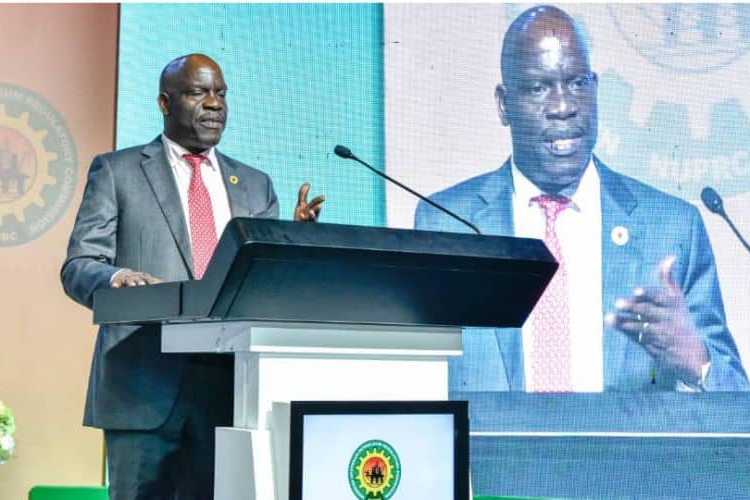Nigeria is gaining renewed global attention as a hotspot for oil and gas investment, following strategic reforms in its upstream sector that are beginning to yield tangible results.
Speaking at the 2025 Africa Energies Summit in London, Engr. Gbenga Komolafe, Commission Chief Executive (CCE) of the Nigerian Upstream Petroleum Regulatory Commission (NUPRC), said the reforms — rooted in transparency, data access, and regulatory overhaul — are restoring investor confidence and driving production growth in Africa’s largest energy market.
Komolafe told energy leaders and investors at the summit that Nigeria’s upstream sector transformation is anchored on three core pillars: transparent licensing rounds, quality subsurface data, and bold regulatory changes enabled by the Petroleum Industry Act (PIA).
“Each of these awards and rounds was conducted with unprecedented transparency, unmatched competitiveness, and remarkable investor engagement,” he said.
“Collectively, they have repositioned Nigeria as a prime destination for oil and gas investment, while reaffirming our commitment to global standards of excellence, innovation, and partnership.”
According to the CCE, the NUPRC’s push to restore Nigeria’s competitiveness has been driven by access to reliable geological data — an essential element for informed exploration and development decisions.
He said the commission, in collaboration with global partners, has embarked on one of the most ambitious data acquisition projects on the continent.
“Through a landmark partnership with TGS-PetroData and other multiclient service providers, the NUPRC embarked on one of Africa’s most ambitious data acquisition and reprocessing campaigns, acquiring over 11,000 square kilometers of 3D seismic data as part of the broader 56,000 sq km Awalé Project,” Komolafe said.
He added that the National Data Repository (NDR), a cornerstone of Nigeria’s data strategy, has been pivotal in improving investor due diligence.
“At the heart of this revolution also is our National Data Repository (NDR), which houses one of the most extensive seismic databases on the continent and records from over 10,000 wells, enabling both physical and remote access for thorough technical due diligence,” he said.
“This wealth of accessible, high-quality data has not only empowered investor confidence during recent bid rounds but has firmly repositioned Nigeria as one of the most data-rich and investment-ready destinations in the global energy landscape.”
Komolafe credited recent progress to the policy environment created under President Bola Tinubu’s administration. Measures such as the reduction of entry barriers and the adjustment of fiscal frameworks have made it easier for investors to commit to Nigeria.
“Today, entry fees are pragmatic, calibrated to global realities, and tailored to support commercial viability on a case-by-case basis,” he said.
“Through the Presidential Executive Orders and the proactive stance of the NUPRC, Nigeria has redefined itself not only as a land of vast hydrocarbon potential but as a destination where opportunity meets ease of doing business, certainty, and investor value.”
Komolafe said Nigeria has moved from eight active rigs in 2021 to 36 today, with projections to reach 50 by the end of 2025. This upward trend also mirrors increases in reserves and production levels.
“New investors, empowered by clarity and quality, have entered our sector; oil and gas reserves and production have increased, while rig counts have surged from 8 in 2021 to 36 currently,” he said.
“With 210.54 trillion cubic feet of natural gas reserves, the largest in Africa, and 37.28 billion barrels of crude oil reserves, Nigeria holds enormous reserves.”





